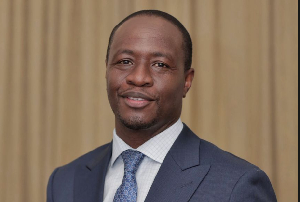Scores of shops in Ghana sell second hand refrigerators and deep freezers imported from Europe.
For many Ghanaians, these are the cheapest outlets for acquiring the essential household equipment to preserve their food and guarantee cold water in the tropical sun, at just 20 percent or less of the cost of a new product.
But very few are aware that these refrigerators and deep freezers had been phased out in Europe because of the dangers which chlorofluro-carbons (CFCs) pose to the atmosphere and to mankind through Ozone Depleting Substances (ODS).
"I don't know of anything like CFCs. All I know is that I have a fridge and it is working well," an Accra housewife told PANA. Since the early 1990s, the Ghanaian government has been battling to phase out CFCs.
Like most developing countries, Ghana does not produce ODS, much of which is consumed through the refrigeration and air-conditioning.
But serious efforts had been made to train air-conditioning and refrigeration technicians to change gadgets that produce the CFCs under a national strategy to phase out CFCs by 2010, and the Environment and Science Ministry says these have been achieving "considerable success."
Available data indicate that from 1991 to 1994, Ghana's ODS consumption, through imports, decreased by 57 percent. It went down from 101.4 tonnes in 1991 to 43.43 percent in 1994.
"As a result of this achievement, Ghana received an award from the United Nations Environmental Programme (UNEP) in 1997," the Ministry said.
The strategies include creating awareness in all sectors, training of refrigeration technicians in code of good practice in refrigeration, carrying out monitoring programmes and generally encouraging industry and the private sector to shift to ozone friendly equipment. "In addition, through the Environmental Impact Assessment regulations, new companies are advised on the use of ODS substitutes," the Ministry added.
But on climate protection, it said in spite of Ghana's greenhouse gas removal capacity, the country is very vulnerable to the changes in the climate system.
"Ghana's vulnerability assessment indicated that agriculture, water resources and the coastal zone are very vulnerable," it explained.
According to the Ministry, to meet its obligations under the UN Framework Convention on Climate Change, a unit for energy resources and climate change has been created under the Environmental Protection Agency.
A National Climate Change Committee has also been constituted and chaired by the Chief Director of the Ministry. Country working groups have equally been constituted to address greenhouse gas inventory compilation and management, greenhouse emissions abatement, vulnerability and adaptation to climate change.
However, the Ministry said the current institutional structure, has been found to be inadequate in addressing the numerous challenges and issues arising from the UN Framework Convention on Climate Change (UNFCCC) and its attendant Kyoto Protocol.
"Currently, Ghana is breaking the ground in the assessment of climate friendly technologies. This current pioneering activity has proved useful to the entire programme of technology transfer under the UNFCCC," it added.












